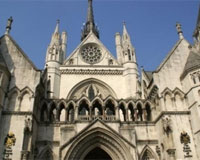The first judicial review over Neighbourhood Forums introduced under the Localism Act 2011 today reached the Court of Appeal, where a newly designated forum says a council wrongly excluded two prime development sites from its area.
The Court of Appeal is being asked to overturn a high court ruling that local authorities have a “broad” discretion under the Act to define the boundaries of such forums.
In March last year, Supperstone J ruled that Wycombe district council was entitled to exclude the two development sites from the Daws Hill Neighbourhood Forum’s area as a result of its concern that there was a “mismatch” between the area actually represented by the residents and the area they sought to control.
However, Paul Stinchcombe QC, opening the appeal today, said that there was “no mismatch at all” and that his clients sought control of a single and indivisible community, tightly defined within recognisable boundaries.
He argued: “We say it is plain that, in legislating to establish Neighbourhood Forums, parliament was intent on delegating to Neighbourhood Forums genuinely substantial powers to shape their neighbourhoods.”
But, in his written submissions, he said that Supperstone J’s decision would have a “profound” impact on the future of Neighbourhood Planning under the Act, as it leaves local authorities a wide discretion to exclude any development site for a large number of potential reasons.
He said that it wrongly placed councils in the “driving seat” of Neighbourhood Planning, rather than local communities, and enables authorities to retain exclusive control over development sites of their choosing.
He said: “In the claimants’ submission, such an outcome is completely contrary to the intention of parliament when legislating to enact Neighbourhood Planning and would defeat the very purpose of the legislation.”
The RAF Daws Hill site has been bought by Taylor Wimpey, with an outline planning application expected in the near future, while the council has already secured two outline planning permissions for development of the Handy Cross Sports Centre site.
The first outline permission includes a sports and leisure centre, foodstore, medicentre/day nursery, 3,300m2 of offices, a coachway park and ride and a 150–room hotel, while the second added retail development. The council has now made a reserved matters application in respect of the first phase.
The judge accepted the council’s argument that planning proposals for the two sites made it inappropriate to include them in the forum’s area, because any development there will have “wider connotations” for the ability of the district to meet development targets.
The council took the view that, if the development potential of the sites is not optimised, then more pressure may be brought to bear on other land in the district, and that views on the proposals would have to be canvassed from a wider area in relation to them.
The judge said: “Section 61G(5) of the Town and Country Planning Act (inserted by the 2011 Act) requires the local planning authority in determining an application for a neighbourhood area to consider whether the area proposed is appropriate.
“The discretion given to the authority is a broad one. The exercise of discretion turns on the specific factual and policy matrix that exists in the individual case at the time the determination is made.
“In my judgment, the council properly had regard to the specific circumstances that existed at the time when the decision was made to designate a Neighbourhood Area which excluded the RAF Daws Hill site and the Handy Cross Sports Centre site.
“None of the grounds of challenge to the decision taken by the Council in this case have been made out.”
The decision is being defended by lawyers for the council and Taylor Wimpey. The court is expected to reserve its decision.
Daws Hill Neighbourhood Forum v Wycombe district council Court of Appeal
(The Master of the Rolls, Sullivan and Briggs LJJ) 10 February 2014
Paul Stinchcombe QC and Lisa Busch (instructed by Leigh Day & Co) for the appellant
Suzanne Ornsby QC and Isabella Tafur (instructed by Democratic, Legal and Policy Services, Wycombe District Council) for the respondent
Morag Ellis QC (instructed by Berwin Leighton Paisner) for the 2nd interested party (Taylor Wimpey)







